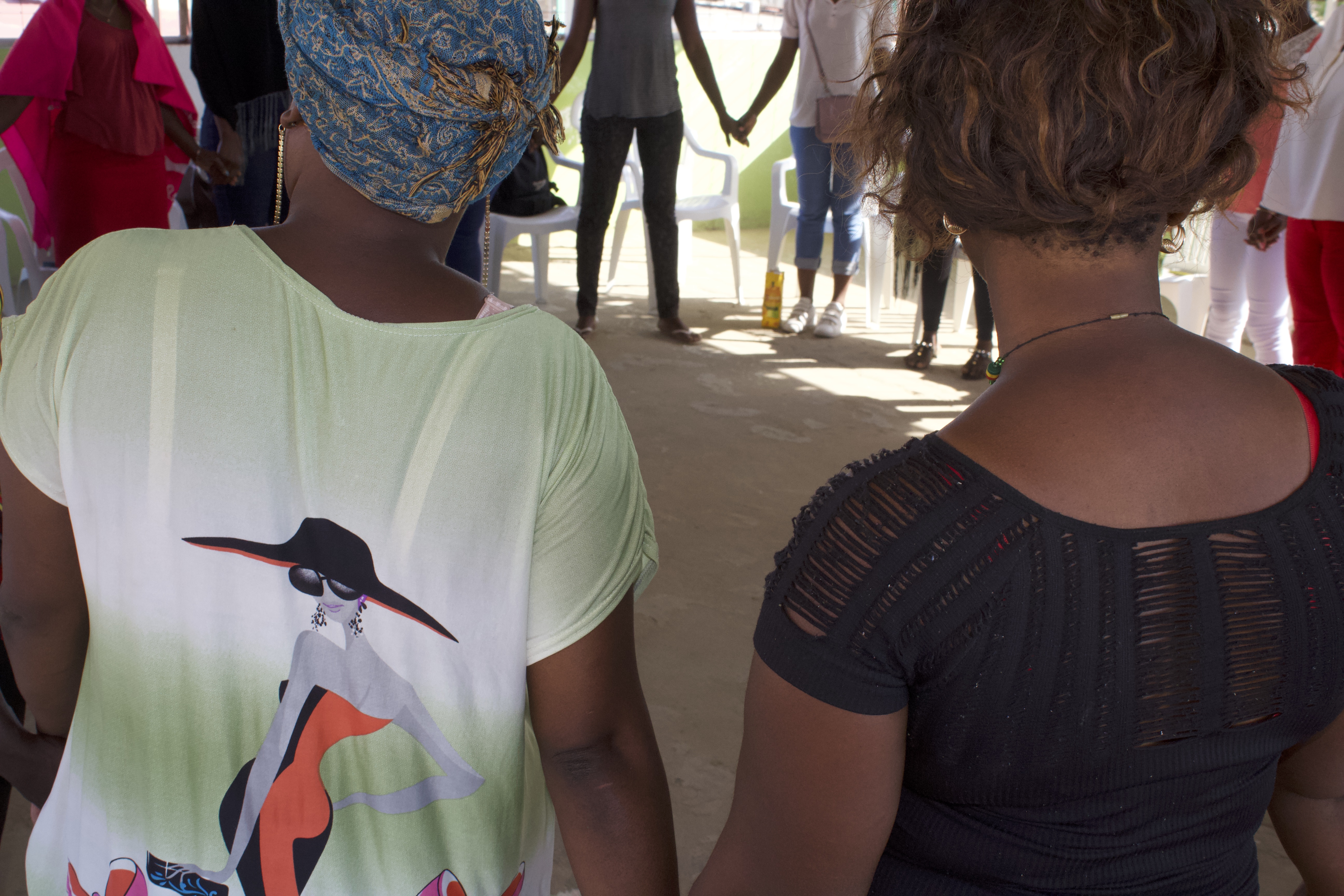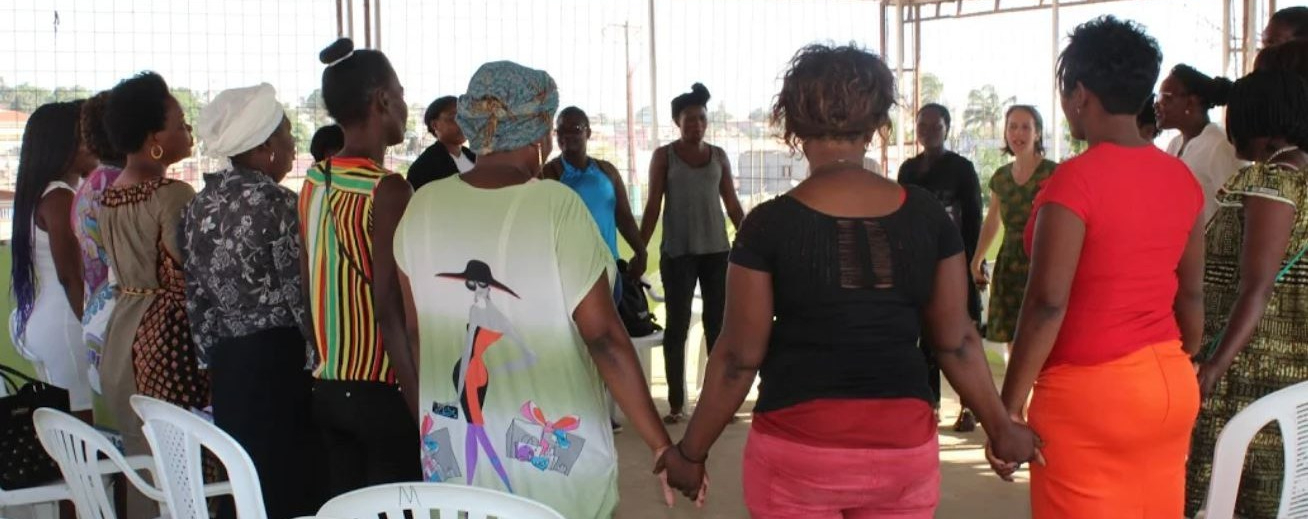Written by Rafaela Egg, Senior Prevention Advisor, Management Sciences for Health/LINKAGES
This blog post was first featured on Management Sciences for Health’s website.

Photo: Rafaela Egg
May 30, 2016, LINKAGES’ Peer Educators Training. It is the first day, time for each peer educator-to-be to introduce themselves to the group. Claudia* is nervous and apprehensive as she has never spoken in public before, let alone as a sex worker. With help from the facilitator, she manages to say a few words, though her voice trembles almost inaudibly as her gaze faces the floor.
February 22, 2018, LINKAGES’ Police Training on the Protection of Key Populations. A highly anticipated activity: members from the key population (KP) community and police staff are meeting for the first time to discuss issues related to violence, discrimination, and rights pertaining to KPs. This is a time met with anxiety and high expectations from both sides. For Claudia, it is a special day.
For the first time in her life, Claudia finally shares her experiences of sexual and physical violence at the hands of police officials as well as at the hands of her partner. While she is visibly nervous, she looks people in the eye and bravely shares her story with a firm voice.
She has come far from her first training as a peer educator nearly two years ago. Now, Claudia is a well-respected supervisor of other peer educators, and she uses that platform to voice the needs of her community and ask the police for protection of her peers so that they will not experience what she did.
“If it weren’t for the LINKAGES project, I’d probably still be doing drugs and be living with HIV.”
Prior to becoming a peer educator, Claudia earned a living as a sex worker. The working conditions were harsh and violence was not uncommon. A tearful Claudia remembers that, at the time, she needed to take drugs to cope with her life. She would have unprotected sex as long as it paid well. After all, she had to support her family. “I don’t know how I didn’t get infected with HIV at that time,” she openly shares.
The day that Claudia was approached by a peer educator from the USAID– and PEPFAR-supported LINKAGES project changed the course of her life forever. She was invited to take part in a project that focused on women like her, a space where she felt accepted for the first time. Since working with LINKAGES, she has learned about sexually transmitted infections including HIV – how to prevent it and test for it, as well as care for and treat those who are HIV-positive. She has taken part in a weekly empowerment group for sex workers carried out by the project, which provides participants with emotional support and a sense of worth, as well as practical health information.
Claudia has learned to cope with and address violence and has become a leader in community empowerment. She has developed the skills to manage her emotions and become a source of strength for other women. She cherishes the opportunity to use her learning and personal growth to help other women like her transform their lives.
LINKAGES Angola works with the government, community-based organizations, key populations, and health care providers to expand their ability to plan and deliver services that reduce HIV transmission. Management Sciences for Health serves as an operating partner for LINKAGES in Angola.
*Names were changed to protect anonymity.

